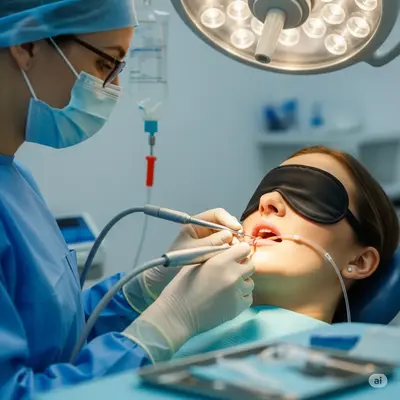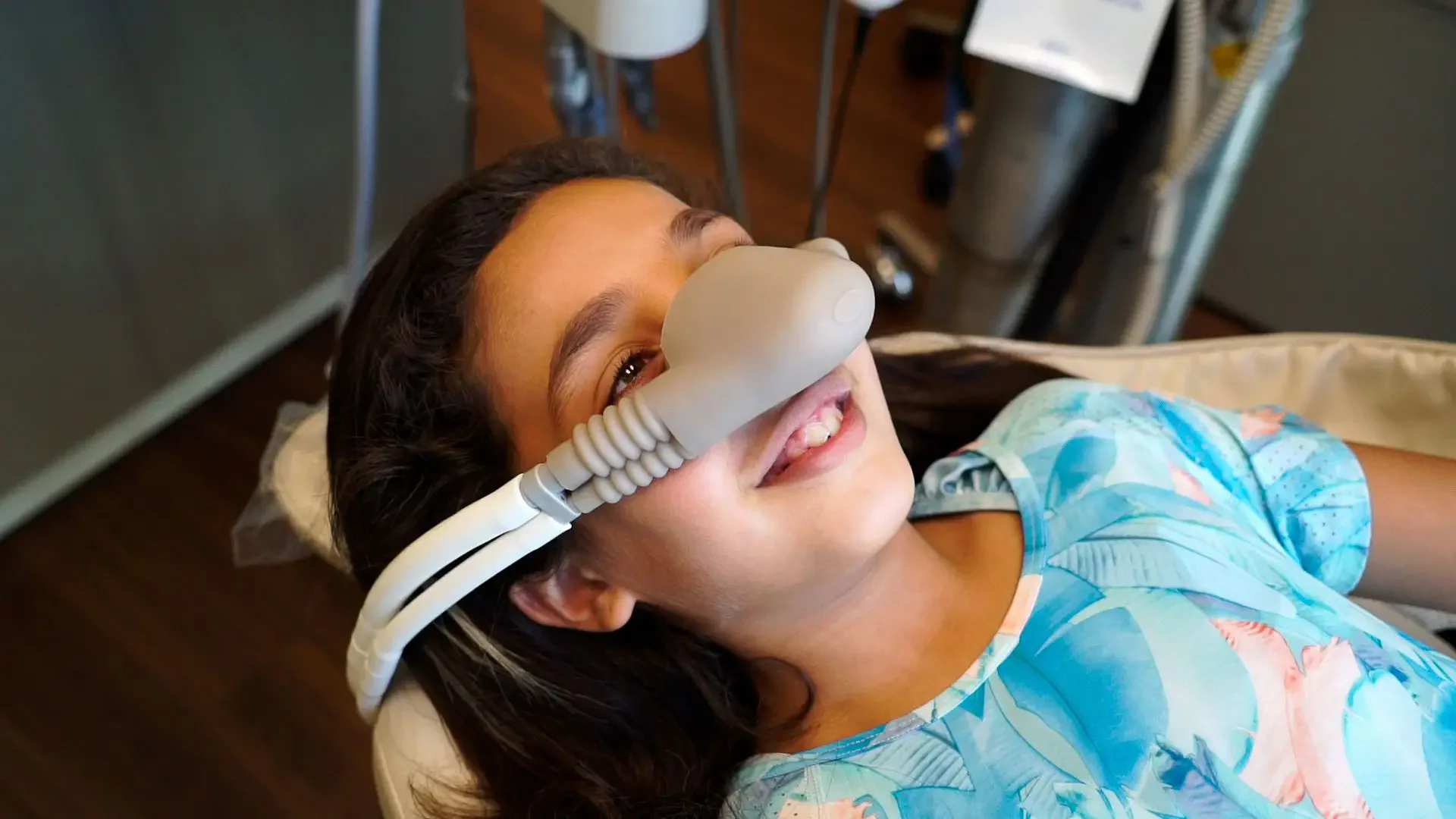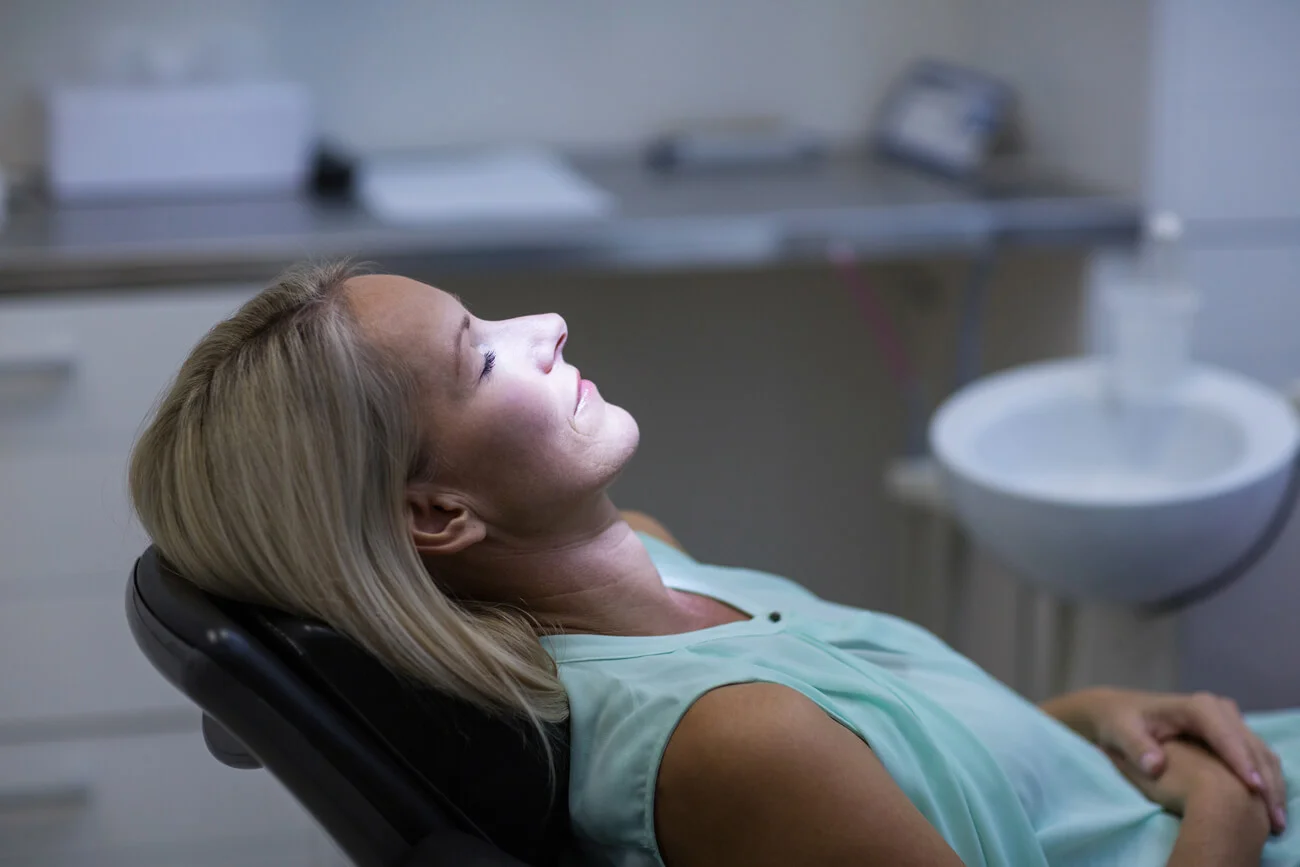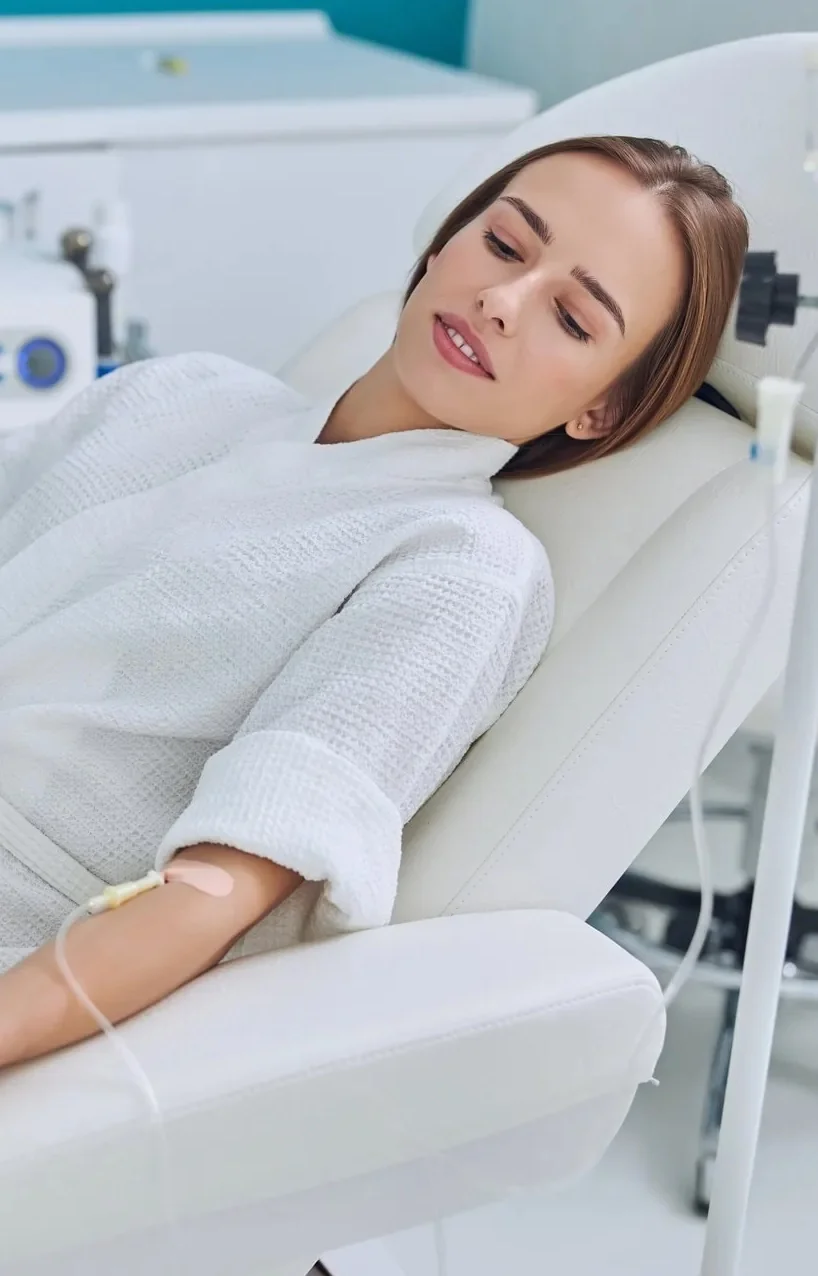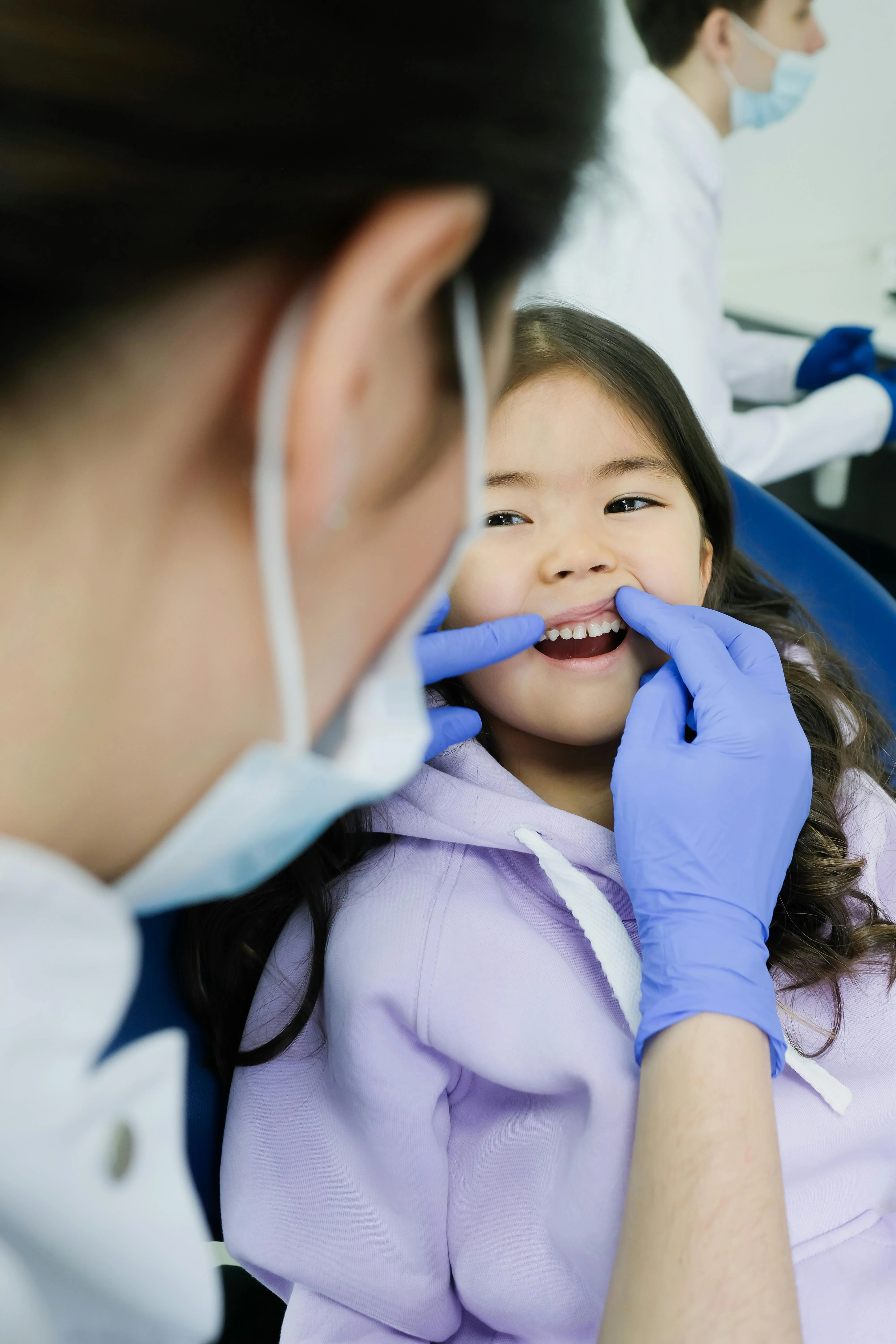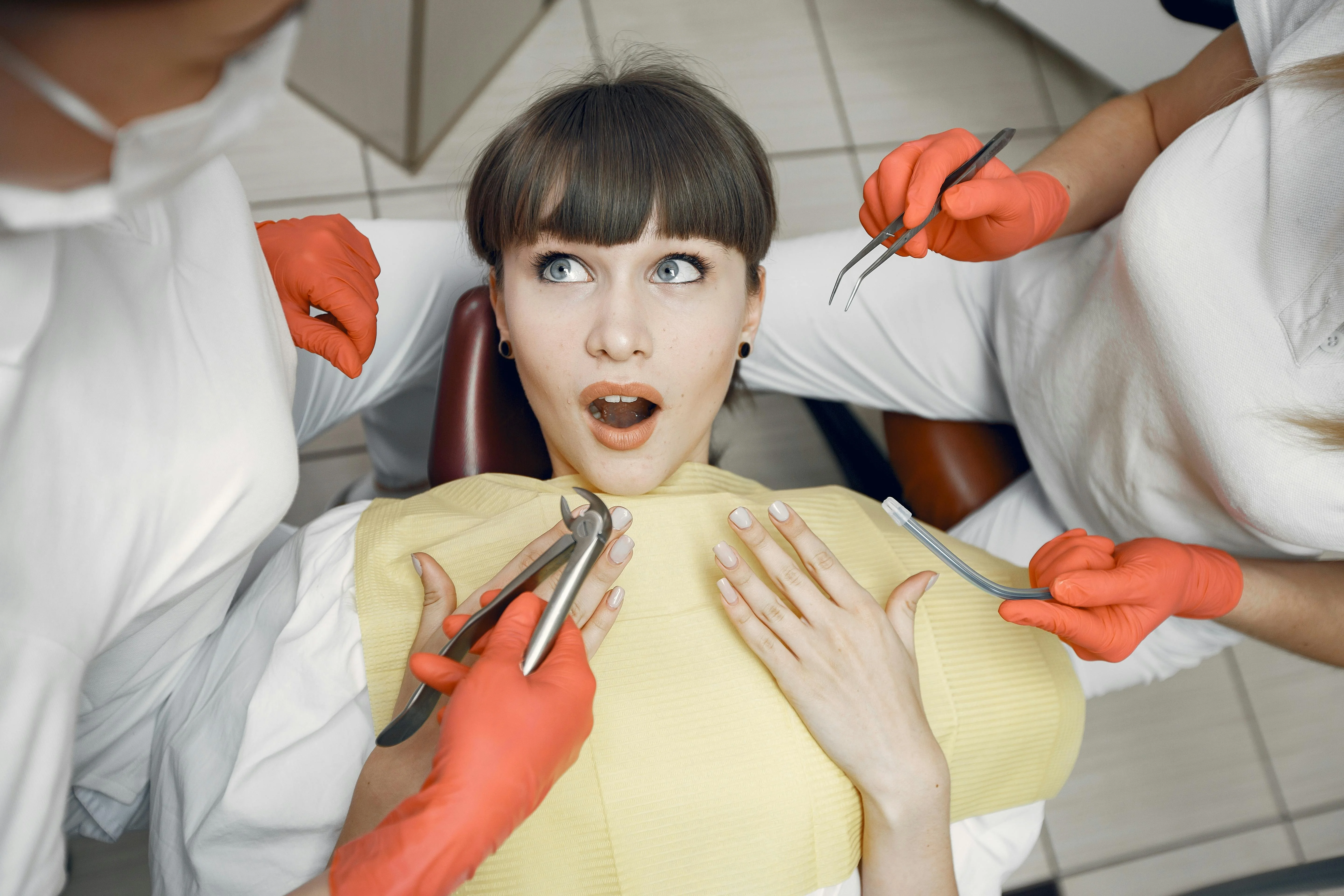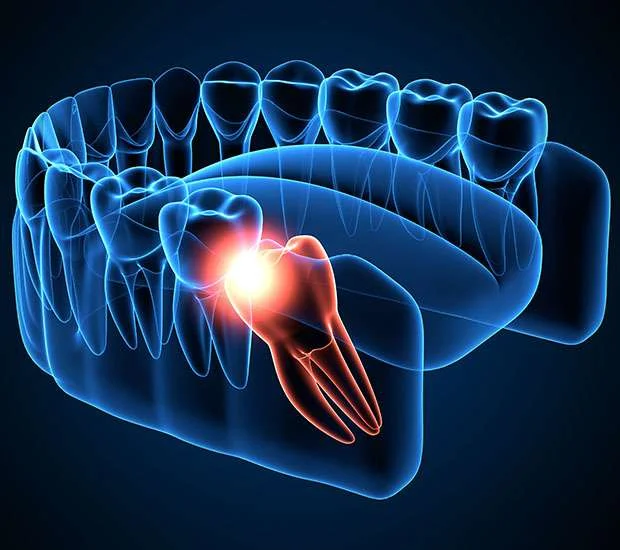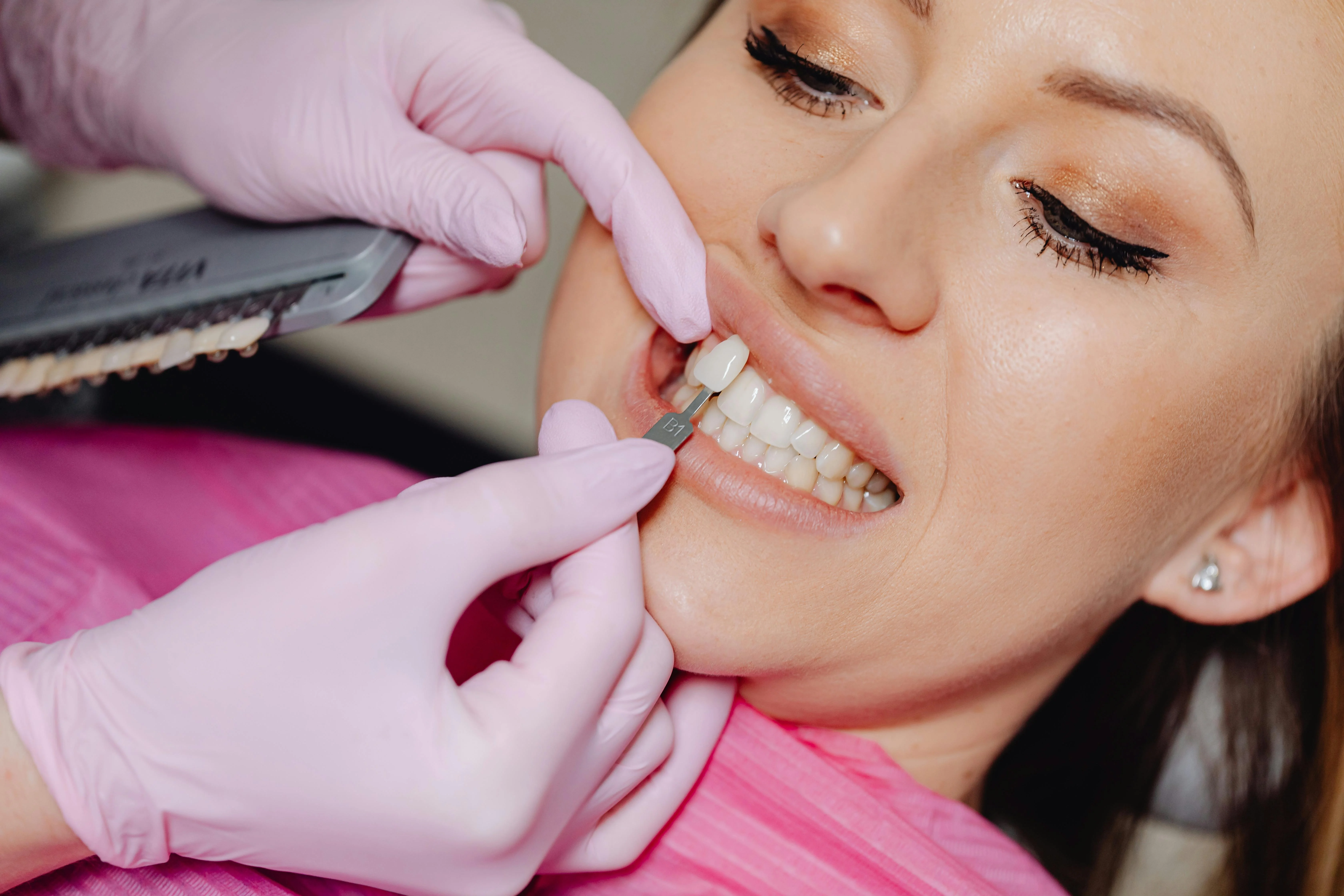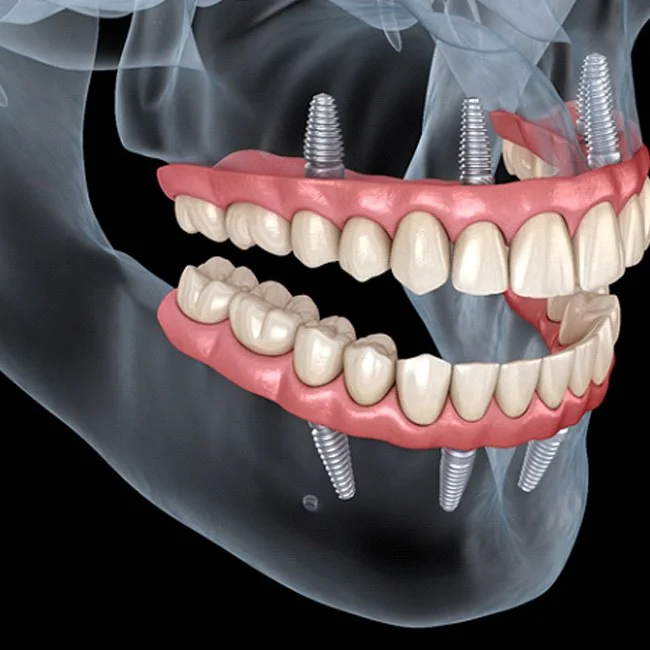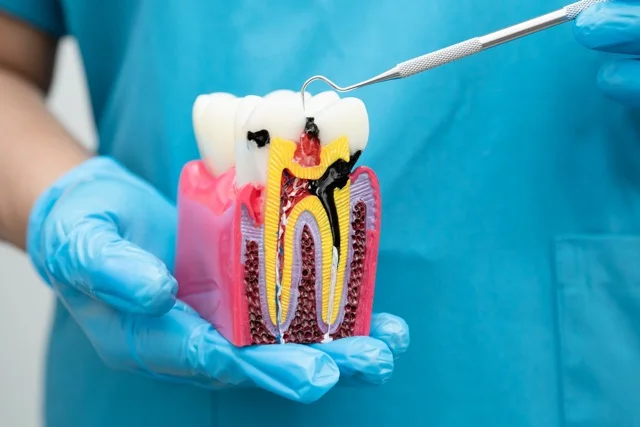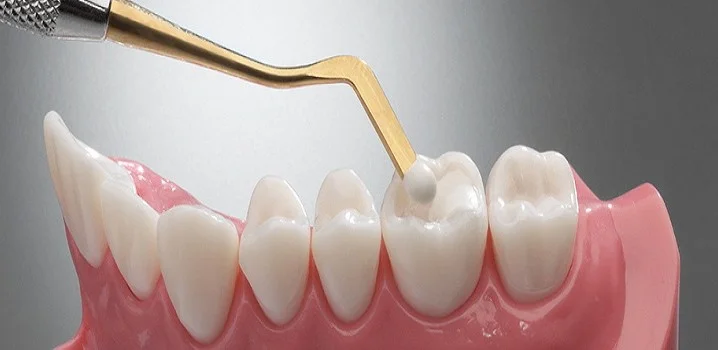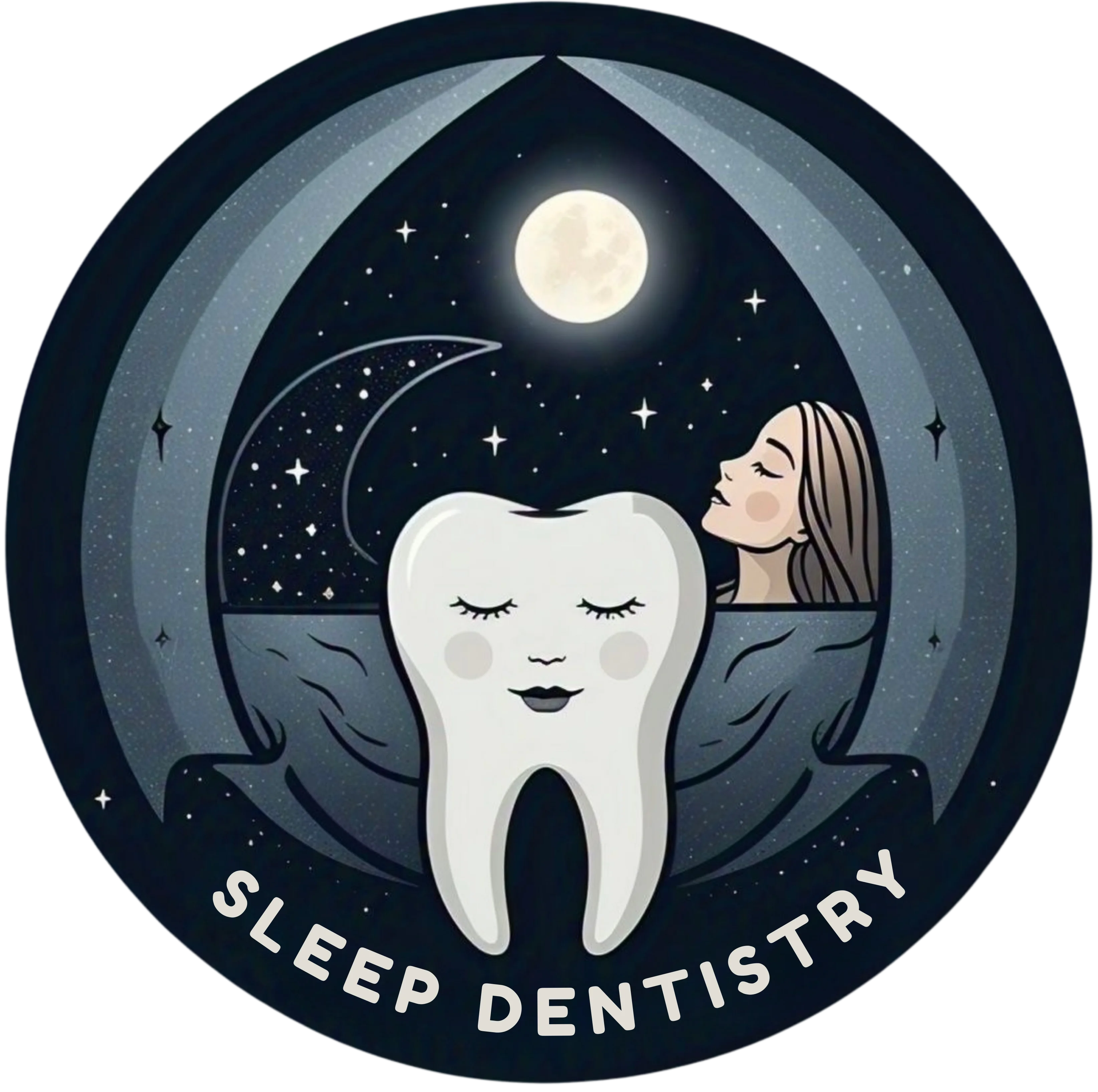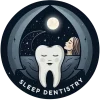
The practice of
Dr. NIKITA
What is Sleep Dentistry?
Sleep dentistry allows you to receive the care you need while deeply relaxed or asleep under carefully monitored sedation. It’s ideal for nervous patients, complex procedures, or anyone who prefers to avoid pain and stress during treatment.
At our Carindale clinic, we provide:
- IV Sedation (Twilight Dentistry)
- Oral Sedation
- Happy Gas (Nitrous Oxide)
- General Anaesthesia Dentistry
Each option is administered by trained professionals for complete safety and comfort.

Why Choose “Sleep Dentistry Near Me”?
- Pain-Free Experience – Advanced sedation techniques tailored to your comfort level.
- Gentle Approach – Every treatment is calm, compassionate, and anxiety-free.
- Safe & Monitored Sedation – IV, Oral, and General Anaesthesia options supervised by trained professionals.
- Convenient Brisbane Location – Located inside Westfield Carindale, easy access from Carina, Camp Hill, Mansfield, and Mt Gravatt.
- Quick Appointments – Call now to discuss your treatment or book same-day sedation consultations.

How common is Sleep Dentistry?
Sleep dentistry is becoming increasingly common, especially among those with dental anxiety or complex treatment needs. While not everyone requires or requests it, those who avoid dental care due to fear, are likely candidates for sedation options. In recent years, more dental practices worldwide have begun offering sleep dentistry, recognizing its value in improving patient comfort and ensuring people don't delay important treatment. It is particularly popular for procedures like wisdom tooth removal, implants, or extensive restorative work, where longer appointments can be stressful.
How does Sleep Dentistry Work?
After a careful chat about your health and anxiety levels, your dentist chooses the right level of sedation. It might be a small pill (oral sedation) you take beforehand that keeps you calm but awake, or nitrous oxide ("happy gas") you inhale during treatment. For deeper relaxation IV sedation is used, where medication is administered through a vein. You will feel so relaxed you might not remember much afterward.
For the most complex procedures or patients with severe anxiety, general anesthesia offers complete unconsciousness, similar to what you would experience during major surgery. Under general anesthesia, you are completely unaware and won't feel or remember anything from the procedure. This option requires the most specialized monitoring and is typically reserved for extensive dental work, multiple extractions, or patients with special medical needs. You'll wake up feeling like no time has passed at all.

All the while, your dentist and a trained team closely monitor your pulse, blood pressure, and breathing, keeping everything safe and controlled. By the end, what could have been stressful feels surprisingly easy and you are left with a healthier smile, often without even remembering the parts you dreaded most.
What is the procedure for Sleep Dentistry?
Initial consultation :
Your journey with sedation dentistry begins with a thoughtful consultation. During this visit, your dentist will take time to learn about your dental history, previous treatment experiences, and overall health to make sure sedation is both safe and suitable for you. Together, you will explore the different sedation options available like oral sedation, IV sedation, or general anesthesia and decide which best fits your comfort level and treatment needs. Your dentist will also walk you through what to expect, possible side effects, and any precautions to follow before and after your appointment.

During the procedure
When it is time for your treatment, you will settle comfortably into the dental chair. The sedation will be administered according to your chosen method, helping you drift into a deeply relaxed or sleep-like state. Throughout the procedure, your dentist and clinical team will carefully monitor your vital signs to keep you safe and comfortable. Depending on your treatment plan, sedation may last from a short period to a few hours, allowing dental work to be completed with minimal stress or awareness on your part.
Post-procedure care :
After your treatment, you will be moved to a quiet recovery area to rest until the sedative's effects wear off. Because sedation can temporarily affect coordination and alertness, it is important to arrange for a family member or friend to drive you home. Once home, you should avoid strenuous activities for the rest of the day. Some mild discomfort or drowsiness is normal, and your dentist may suggest pain relief if needed. Before you leave the clinic, you will receive clear, tailored instructions about medication, diet, and oral care to help you recover smoothly and comfortably.
Who might benefit from sleep dentistry?
- Patients with dental phobia or anxiety
- Those needing multiple or lengthy procedures
- People with a strong gag reflex
- Patients with special medical conditions
- Anyone who avoids the dentist due to fear of pain
If any of these describe you, Sleep Dentistry can change your entire dental experience.
Your Comfort, Our Priority
We understand that trust and relaxation go hand in hand. Our Brisbane clinic
has been designed for calmness — soft lighting, soothing scents, and a
friendly, compassionate team that puts you at ease from the moment you
arrive.
We don’t rush. We listen, explain, and make sure every step is comfortable.

What are the advantages of sleep dentistry?
Perfect for sensitive smiles
Peaceful visits
Comfortable care
Zero discomfort/fear
More dental procedures in one go
Personalized and gentle approach for every unique need
Is Sleep Dentistry Expensive?
The cost of sleep dentistry depends upon various factors like the patient needs and the type of sedation chosen.
As we aim at offering high-quality dentistry to all patients, we ensure that our treatment plans are accessible to them.
Our staff assists the patients by offering them flexible payment options and work out their treatment expenses so that it can fall well within their budget.
Dr. Nikita will discuss with you all the available treatment options that best suits your oral health needs. The timelines within which the treatment needs to be completed will also be discussed.
Our focus is to help you achieve a healthy smile in the most comfortable way possible. And for that you need to take the first step of booking a consultation with Dr. Nikita online or call us right away.
Sleep Dentistry at Dental Nook

Step into a space where dental care feels more like a serene retreat than a clinic. At our elegant sleep dentistry practice, you will be cared for by a highly skilled team: Specialist Anesthetist, an experienced dentist, a registered nurse, and a senior dental assistant all deeply experienced in helping patients with dental anxiety feel completely at ease.
As you settle in, you will notice the difference immediately. Sunlight pours through expansive windows, while subtle fragrances and gentle music wrap around you, easing tension before your treatment even begins. Afterward, drift peacefully in our dedicated recovery lounge that has been thoughtfully designed with plush seating and soft, calming lighting.
Here, every detail is crafted to soothe the senses and calm the mind, transforming your dental visit into an experience of true comfort and quiet confidence.
Meet Dr Nikita Verma

With over 15 years of experience in gentle and complex dental procedures, Dr Nikita Verma is one of Brisbane’s leading sleep dentists. She’s known for her precision, calm communication, and commitment to helping even the most anxious patients receive world-class dental care.
Expertise in Sedation Dentistry
Her expertise covers IV Sedation, Oral Sedation, and General Anaesthesia
Dentistry, ensuring every patient feels safe, comfortable, and relaxed
throughout their treatment.
A Peaceful, Positive
Experience
“Our goal is simple — to make dentistry a peaceful, positive experience for
everyone.”
Comparing Sedation Options
| Sedation Type | Best Suited For | Awareness Level | Approximate Recovery | Location |
|---|---|---|---|---|
| Happy Gas | Mild dental anxiety or short, simple treatments | Fully awake but calm and relaxed | Around 5–10 minutes | Performed in the dental chair |
| Oral Sedation | Moderate anxiety or longer appointments | Awake yet pleasantly drowsy | Several hours | Performed in the dental chair |
| IV Sedation | High anxiety, complex or lengthy procedures | Semi-conscious and deeply relaxed | Up to 24 hours | Performed in the dental chair |
| General Anaesthesia | Severe dental phobia or major surgical treatments | Completely unconscious | Usually 1–2 days | Carried out in a hospital or specialised facility |
Sedation Types
1. Oral Sedation
Taken as a prescribed medication before your appointment, oral sedation
reduces anxiety and helps you remain calm throughout your treatment.
Perfect for moderate dental fear, or for patients who prefer a simple and
gentle option.
2. Happy Gas Sedation (Nitrous Oxide)
A light, fast-acting sedative that relaxes you during minor treatments. The
effects wear off quickly, allowing you to resume your day soon after your
visit.
3. General Anaesthesia Dentistry
For patients with high dental anxiety, special medical needs, or complex
procedures, General Anaesthesia ensures you are fully asleep and unaware
throughout treatment.
Performed under hospital-grade supervision for maximum safety and comfort.
Our Sleep Dentistry Treatment Types in Brisbane
1. IV Sedation Dentistry (Twilight Dentistry)
Also known as “Twilight Sleep,” this option allows you to stay relaxed yet
responsive while feeling completely at ease.
It’s ideal for lengthy or multiple treatments such as implants, extractions,
or root canal therapy.
You’ll have little to no memory of the procedure — just a peaceful,
pain-free experience.
2. Sleep Dentistry for Complex Procedures
We perform a wide range of treatments under sedation, including:
- Dental Implants
- Wisdom Tooth Extraction
- Full Mouth Rehabilitation
- Smile Makeovers
- Emergency Dental Care
No matter how complex the case, we make every procedure comfortable and fear-free.
Payment Options
We accept a wide range of payment options to make your dental care more convenient and accessible.




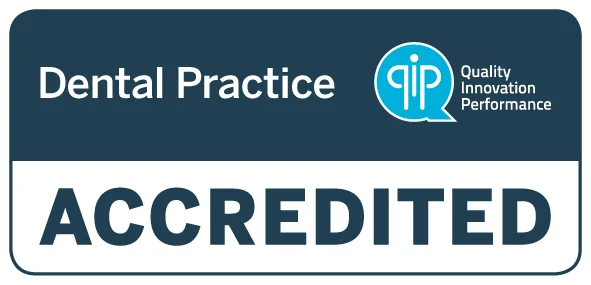




Frequently Asked Questions
- The number of appointments depends upon the type and the complexity of the procedure. Most of the treatment procedures are completed within a single appointment.
- Oral sedation may need up to an hour before you feel its full calming effect
- Inhalation sedation (happy gas) typically begins working within just a few minutes
- IV sedation usually starts to take effect almost immediately, often within minutes or less
- We need to know about your dental and medical history
- Let us know the medicines you are on currently.
- Based on the type of sedation used, you will receive a set of specific instructions. Following these carefully is essential to ensure your safety and the success of your treatment.
- Inhalation sedation typically wears off quickly and leaves very few after effects
- With oral or IV sedation, you may feel drowsy afterward and will likely remember little or nothing about the procedure
- If you receive oral or IV sedation, you'll need someone to drive you home once your appointment is finished
- It's important not to drive or use machinery for at least 12 hours following oral or IV sedation
- Sedation is meant specifically for patients who feel nervous or anxious about treatment. It is absolutely safe when performed in a controlled setting. If you are feeling uneasy about an upcoming procedure, talk to your dentist about the different sedation options that could help you feel more comfortable.
- The cost of sedation depends on the type chosen.
- It is best to check with your dentist or oral surgeon beforehand to see what is available.
- During your consultation, our team will suggest the most suitable type of sedation for your needs and provide an estimate of the cost involved.
- Most patients remember very little — just feeling calm and refreshed afterwards.
We are also running a helpful blog series about sedation dentistry, filled with practical advice and tips. If you would like to get updates on new posts, you can subscribe on our website.
- You can feel at ease! Sedation dentistry is designed to help you stay calm and reduce anxiety during treatment. Alongside sedation, your dentist will also use a local anaesthetic so you won’t feel pain during the procedure. With most sedation types, you will likely remember very little afterwards, making the experience feel quick and stress-free.
- Sedation is very safe when administered by trained and experienced dentists, and complications are uncommon. However, certain medical conditions can increase risk, which is why your dentist will review your full medical history before proceeding. It is a good idea to openly discuss any questions or concerns you might have about sedation so you feel confident and informed.
- It is normal to feel drowsy or groggy once the sedation wears off, and you might experience sluggishness, slower reflexes, mild nausea, a slight headache, or low blood pressure. These effects usually fade within a few hours. After your appointment, plan to rest and avoid driving, working, or operating machinery until you feel fully alert again. If anything worries you, don’t hesitate to speak with your dentist. They are there to help.
- Sedation helps you stay calm and relaxed during your dental treatment. You will still be awake and able to respond, but you might not remember much once it wears off.
- Make sure you have an adult to take you home after your appointment and stay with you for the next 24 hours. Please don't bring children along.
- Tell us if there have been any changes to your health or medications. Keep taking your usual medicines (including inhalers) unless we say otherwise.
- If you feel unwell before your visit, let us know as it might affect your treatment.
- Wear comfy, loose clothes with sleeves that can roll up past your elbows. Brush your teeth well before coming in.
- Don't eat or drink anything for three hours before your appointment. Before that, you can have a light meal without much fat. Please also avoid alcohol on the day of your treatment.
- After your appointment, your escort should drive you home by private car rather than using public transport.
- Once home, take it easy. Rest for a few hours and keep your day calm and quiet.
- Choose light, easy-to-digest meals and make sure to take any medication we have prescribed.
- For the next 24 hours, it is important to avoid driving, operating machinery, or even using household appliances.
- Skip alcohol completely, and hold off on returning to work, making major decisions, or signing any important papers until you are fully recovered.
- Yes. All procedures are monitored by trained professionals using hospital-grade equipment.
- No — you'll need a friend or family member to drive you home.
- Most major funds offer partial rebates. Our team can check this for you.
Areas We Serve
We proudly help patients from across Brisbane South and East, including:
Carindale | Camp Hill | Carina | Mansfield | Mount Gravatt
Wherever you are in Brisbane, your comfortable, pain-free dental experience is only minutes away.
Need Assistance?
Have questions about a treatment?
Whatever brings you here, our team is ready to listen, guide and support you every step of the way.
Reach out in the way that feels best for you. Call us for your query, drop us an email, or send a message through our contact form.
